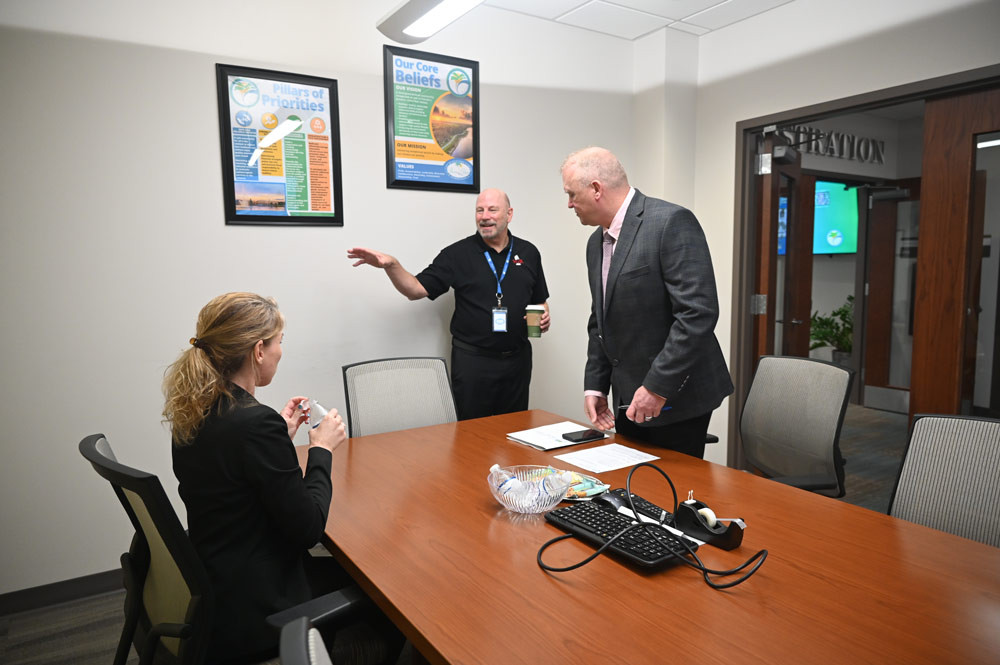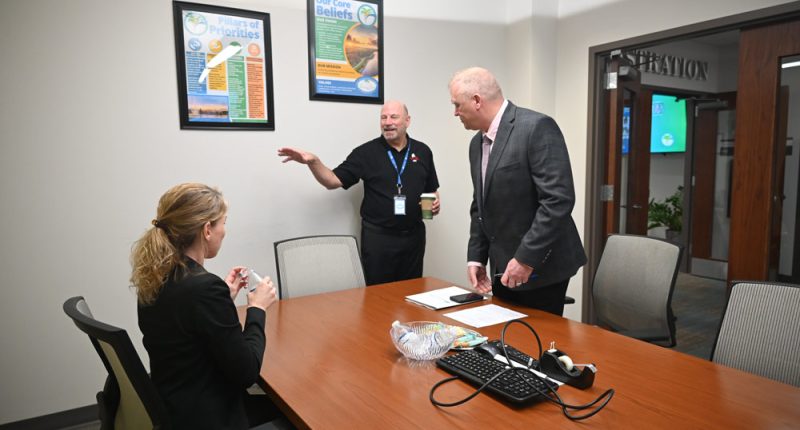
In 10 years and 330 searches for city or county manager positions that Doug Thomas has conducted with SGR, the Texas-based recruitment firm, he’s never seen the kind of unraveling he saw in Palm Coast over the last few weeks.
“I’ve never lost three finalists after they’ve been selected. Sometimes you lose one,” said Thomas. Palm Coast had five finalists. Three dropped out before they were interviewed. “I’ve never lost one finalist after an interview process,” Thomas said. Palm Coast lost one of the two it interviewed, and the second is hanging by a thread. “When you ask me if I’ve ever encountered a situation like this, absolutely not.”
Thomas and SGR conducted Palm Coast’s latest search for a city manager, what would be its sixth city manager in seven years, when interims are included. After council majorities voted against hiring both its finalists last Tuesday–Paul Trombino and Rich Hough–and after Trombino dropped out immediately following the votes, Thomas is recommending that the council pause the process for a while, switch gears, and self-reflect, preferably as a collective body.
“There’s got to be time to heal, to talk about where they go as an organization,” he said of the council. He cites a series of dynamics the council has to work out first. (Mayor Mike Norris was just investigated for charter violations and other improprieties. Norris considers Council member Charles Gambaro’s appointment illegitimate. Norris supporters echo his claims that the council and the city are corrupt.)
“My recommendation is just going back to the marketplace is not necessarily going to result in a different outcome. Those dynamics are still in play,” Thomas said. “If you think the first round was difficult, the second one would be that much more challenging. They need time to settle down.”
He is recommending that the council retreat from the search for now, regroup, go through a facilitated process for its members to better understand each other and “gel” before moving on to another search. He said his company or a number of other companies could provide the facilitation, which new elected boards typically carry out anyway, whether they have issues of dynamics or not. The problem is especially pronounced in Palm Coast because it is such a young board, seated after unusual turnover.
Thomas does not see unanimity behind Hough, even if Hough were to stay in somehow. Last Tuesday, the council requested that Hough and Trombino each produce a white paper on budgeting. A council member was uncomfortable with their lack of experience in that regard. The papers were to be discussed next Tuesday and possibly reopen the way for a vote on the two candidacies. Trombino opted out, and Hough is not writing the white paper for now, Thomas said.
“We’re not asking Mr. Hough at this stage to do anything,” he said. Thomas is awaiting direction from the council on whether it actually wants to go ahead with the white-paper discussion, even though Hough is the last man standing, and he doesn’t appear to have much support. While Hough is sticking with it, Thomas doesn’t see the council’s dynamics changing at this point, nor its votes. “If a candidate doesn’t have unanimous support on day one, it creates problems,” Thomas said. “Even if selected on 3-2, candidates will not complete a full negotiating process if they don’t have the full support.”
Thomas recommends that the council have a discussion with Acting City Manager Lauren Johnston about extending her tenure in that role, giving the council time to find its bearings and project a more unified front to potential candidates next time it recruits. That could take a while. Alternately, he said firms like his could also provide an interim. It’s not uncommon, though that approach appears unlikely (or unnecessary) in Palm Coast, where Thomas sees stability in the administrative ranks.
A very different city council started the hiring process over a year ago, first disagreeing on what kind of search firm it wanted. It chose SGR by September. The recruitment ads went out after the November election, by which time four of the five council seats had new members–and one of the newly elected members soon resigned for health reasons, prompting the appointment of Dave Sullivan this month, a week before the interviews of the two candidates.
For all the turmoil and unique result of the past week in Palm Coast, Thomas said that the dynamics for city and county managers are changing across the country for several reasons. Three principal reasons are these.
First, the partisanship and divisiveness that used to be limited to state capitals and Washington now affect local governments, amplified by social media. City and county managers are taking the brunt of the criticism, when local issues arise. What used to be normal controversies now take on a polarized “us-versus-them aspect that didn’t exist before, and that makes managers’ positions more tenuous.
Second, as the top position becomes more volatile, deputy managers or assistant managers become reluctant to move on to take those top jobs, finding more security and purpose in their jobs as second or third in command. That happens to describe Johnston’s feeling about the job. She has been eager to return to her position as assistant city manager. That has thinned the ranks of recruitable city or county managers. When SGR advertises for the deputy or assistant positions, it gets twice as many applicants as it does when it advertises for the top job.
Third, as baby boomers retire at the rate of 10,000 a day, they’re taking with them a whole generation of city and county managers, without replacements behind them. “Universally, that’s what’s going on in the profession,” Thomas, who is addressing a national conference on that very issue next week in Missouri, said.
None of that helps Palm Coast. But it places Palm Coast’s difficulties in context, even when the city’s self-inflicted difficulties are accounted for. “Being in city management is a call, you have to feel that,” Thomas said. If it isn’t a calling, “it’s not the right job.”









